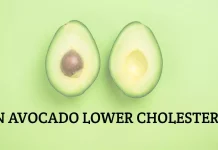Monosodium glutamate (MSG) has been a subject of debate in nutrition and food science for a considerable time. Is MSG a hidden health threat or a harmless flavor enhancer? Let’s aim to demystify MSG, shedding light on the ongoing debate surrounding its safety and providing clear, easy-to-understand insights.
What Is MSG, and Why the Controversy?
MSG is a flavor enhancer that adds a savory taste known as umami to foods. The controversy surrounding MSG sometimes stems from its association with Chinese takeout and processed snacks. Some claim that consuming MSG can result in headaches, allergic reactions, and various health issues, while others assert that it is entirely safe when consumed in moderate quantities.
Separating Fact from Fiction
Separating fact from fiction about monosodium glutamate (MSG) is crucial for understanding its true impact. Debunking myths and understanding the scientific evidence surrounding MSG is essential for making informed decisions about its consumption and effects on our bodies.
The Science Behind MSG
The science behind MSG revolves around its ability to enhance flavors through its umami taste, making dishes more savory and appealing. This effect is primarily due to MSG interacting with taste receptors on our tongues. Understanding this science can help demystify the controversy surrounding MSG’s safety and its role in food.
The Safety Measures in Place
Regulatory bodies like the FDA and WHO have determined that MSG is safe for consumption, and various scientific studies support its safety.
Your Relationship with MSG
Your relationship with MSG ultimately depends on your tolerance and preferences. While some people may experience no adverse effects and enjoy its flavor-enhancing qualities, others might prefer to limit their intake or opt for alternatives to maintain peace of mind.
The Verdict: To MSG or Not to MSG
The verdict on whether to include MSG in your diet ultimately depends on individual tolerance and preferences. While scientific consensus suggests it’s generally safe in moderate amounts, some people may choose to avoid it due to reported sensitivities.
Frequently Asked Questions (FAQs)
What is MSG, and why is it used in food?
MSG, short for monosodium glutamate, is a widespread flavor enhancer to boost the savory flavor in numerous dishes. It originates from glutamic acid, an amino acid naturally present in foods such as tomatoes and cheese.
Is MSG the same as sodium?
No, MSG and sodium are not the same. MSG is a compound that includes sodium, although sodium is a distinct element in numerous foods, particularly salt (sodium chloride).
What are the common symptoms associated with MSG consumption?
Some people have reported experiencing symptoms such as headaches, sweating, and chest pain after consumption of foods containing MSG. However, scientific studies have not consistently linked these symptoms to MSG consumption.
Is MSG considered safe by health authorities?
Yes, major health organizations, including the FDA and WHO, have classified MSG as generally known as safe (GRAS) when used in amounts in food.
Can I be allergic to MSG?
True allergies to MSG are rare. Some people may experience mild sensitivity to it, but it is not considered a verifiable allergic reaction.
How can I identify foods that contain MSG?
Look for ingredients like “monosodium glutamate” or “MSG” on food labels. Some foods may naturally contain glutamate, but this is not the same as added MSG.
Are there alternatives to MSG for enhancing flavor?
Yes, there are many natural flavor enhancers, such as herbs, spices, and umami-rich ingredients like mushrooms and Parmesan cheese.
Can MSG be harmful when consumed in large quantities?
Like many substances, excessive consumption of MSG may have adverse effects. However, when used in typical amounts in cooking, MSG is generally considered safe.
How can I include MSG in my diet safely?
Use MSG sparingly as a seasoning, similar to how you would use salt. Begin with a small amount and alter it to your preferred taste.
What’s the bottom line of MSG’s impact on health?
The consensus is that MSG is safe for many people when consumed in moderate amounts.











